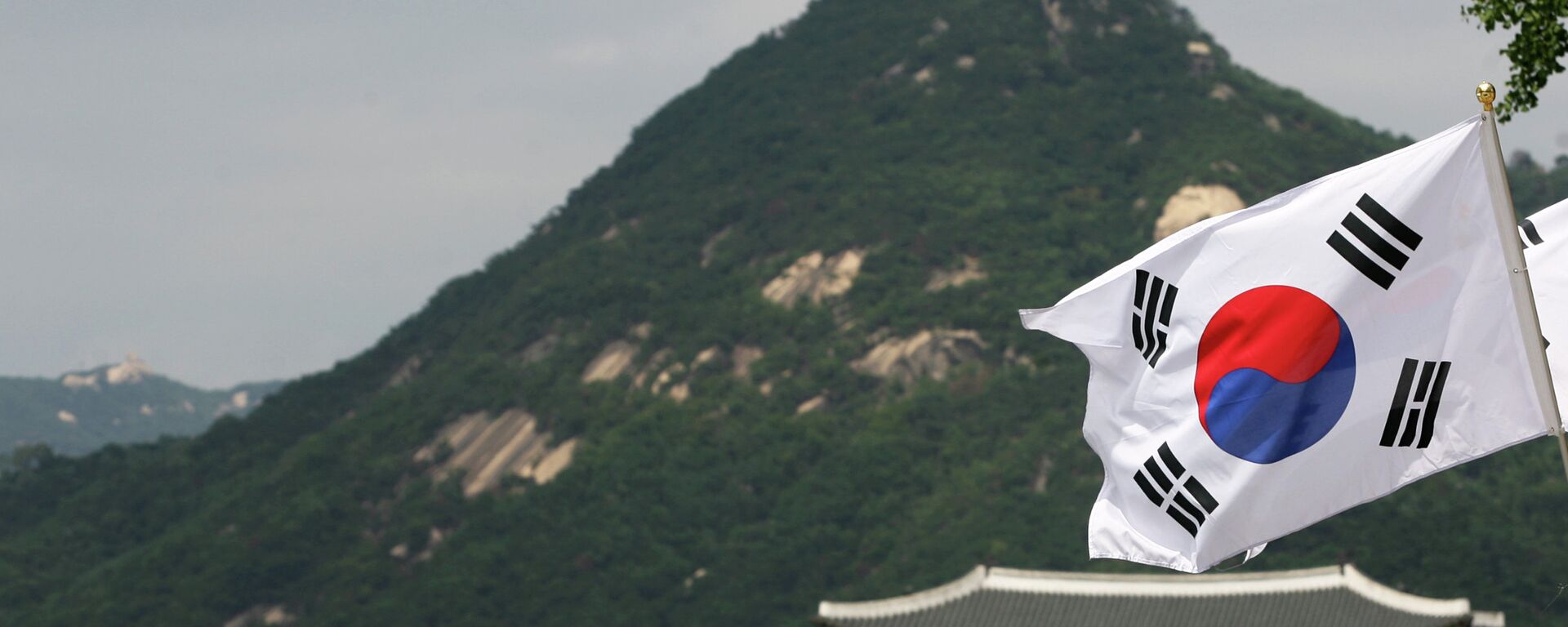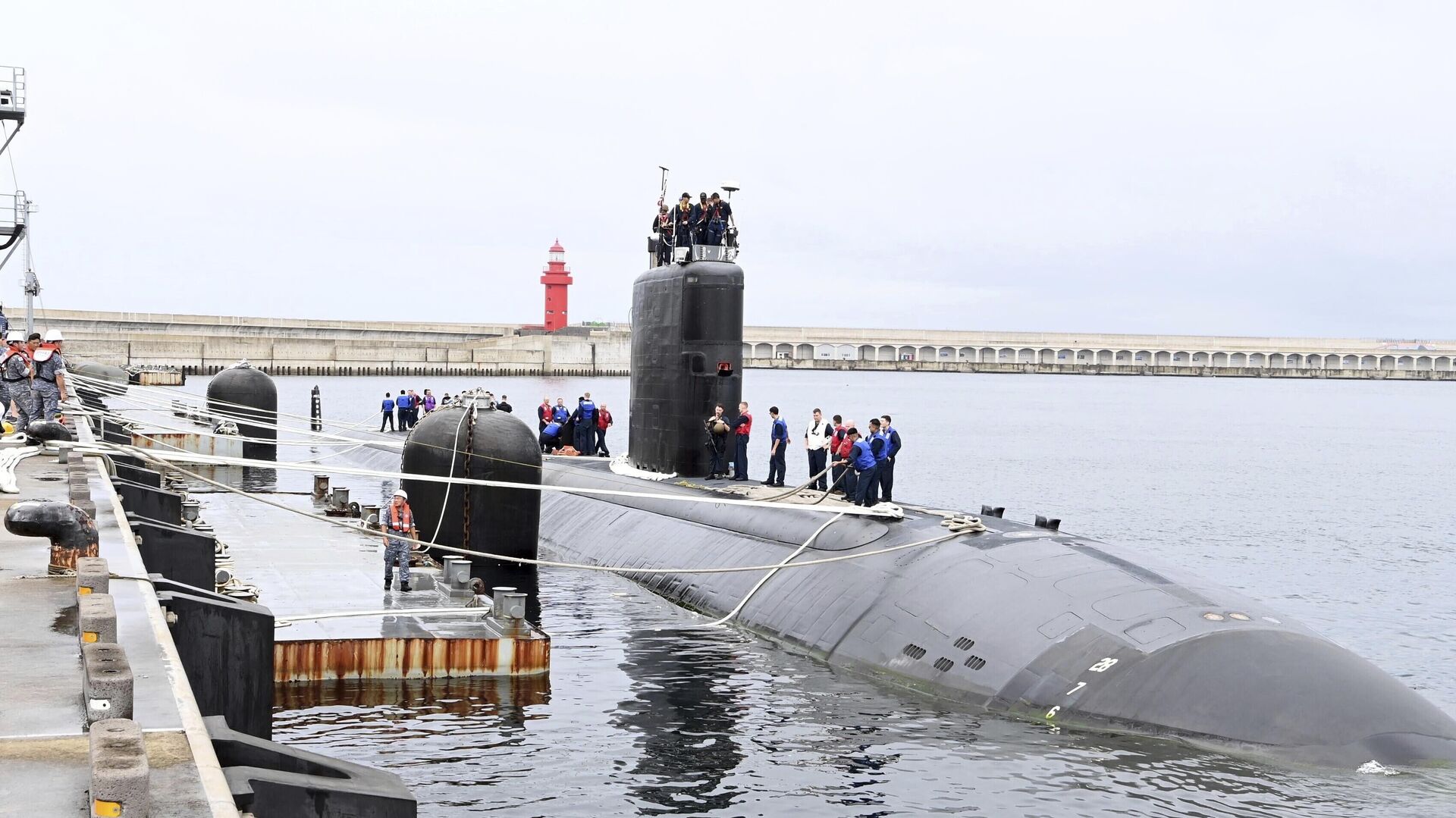https://sputnikglobe.com/20241102/south-koreas-possible-pursuit-of-nukes-could-trigger-off-more-nuclear-proliferation-in-asia-1120754556.html
South Korea's Possible Pursuit of Nukes Could 'Trigger Off More Nuclear Proliferation' in Asia
South Korea's Possible Pursuit of Nukes Could 'Trigger Off More Nuclear Proliferation' in Asia
Sputnik International
The US secretary of defense is “merely initiating a longer-term dialogue with South Korean counterparts” in these pre-election times, suggests Michael Madden, nonresident fellow at the Stimson Center and leading contributing analyst to 38 North.
2024-11-02T18:25+0000
2024-11-02T18:25+0000
2024-11-02T19:54+0000
analysis
opinion
south korea
nuclear weapons
us military
https://cdn1.img.sputnikglobe.com/img/07e8/09/17/1120254122_0:55:3401:1968_1920x0_80_0_0_bbfdcb8654ae7bf726989e580f4571bd.jpg
Earlier, top US general, Lloyd Austin, declared that the US and South Korea are deepening their nuclear and strategic planning efforts and that Washington promises to back Seoul with nuclear capabilities“As you know, there is an election next week. It seems reasonable to assume that either victor, Trump or Harris, will make their own decisions and Austin was aware of that when he spoke,” Madden elaborates, deeming the prospects of South Korea launching its own nuclear weapon program as unlikely due to the lack of necessary infrastructure.“The US might expand the so-called "nuclear umbrella" and there might be an uptick in port visits and the like. The intention is to placate an ally that seems to be overreacting,” Madden postulates.Meanwhile, political scientist Dr. Victor Teo, who specializes in international relations of the Indo-Pacific region, argues that the rhetoric used during Austin’s meeting with his South Korean counterpart in Washington is “the usual war of words we see between North and South Korea since the South Koreans elected the current president and put the conservatives into power.”If Seoul were to pursue the creation of its own nuclear arsenal, Teo warns, it would likely set a precedent that other countries – such as, for example, Japan, another close ally of the US in the East Asia region – may take note of, “and would likely trigger off more nuclear proliferation in the region if both South Korea and Japan undertake nuclear armament.”
https://sputnikglobe.com/20241022/south-korea-mulls-sending-military-experts-to-ukraine--reports-1120635262.html
south korea
Sputnik International
feedback@sputniknews.com
+74956456601
MIA „Rossiya Segodnya“
2024
Sputnik International
feedback@sputniknews.com
+74956456601
MIA „Rossiya Segodnya“
News
en_EN
Sputnik International
feedback@sputniknews.com
+74956456601
MIA „Rossiya Segodnya“
Sputnik International
feedback@sputniknews.com
+74956456601
MIA „Rossiya Segodnya“
us south korea military cooperation, south korea nuclear weapons, us military presence in korea
us south korea military cooperation, south korea nuclear weapons, us military presence in korea
South Korea's Possible Pursuit of Nukes Could 'Trigger Off More Nuclear Proliferation' in Asia
18:25 GMT 02.11.2024 (Updated: 19:54 GMT 02.11.2024) The US secretary of defense is “merely initiating a longer-term dialogue with South Korean counterparts” in these pre-election times, suggests Michael Madden, nonresident fellow at the Stimson Center and leading contributing analyst to 38 North.
Earlier, top US general, Lloyd Austin, declared that the
US and South Korea are deepening their nuclear and strategic planning efforts and that Washington promises to back Seoul with nuclear capabilities
“As you know, there is an election next week. It seems reasonable to assume that either victor, Trump or Harris, will make their own decisions and Austin was aware of that when he spoke,” Madden elaborates, deeming the prospects of South Korea launching its own nuclear weapon program as unlikely due to the lack of necessary infrastructure.
“I don't see the United States substantively helping South Korea in that regard nor would they support it rhetorically particularly if it is against perceived threats from the DPRK—after all, if South Korea is given approval or assistance then other US allies might start seeking a similar dispensation,” he notes.
“The US might expand the so-called "nuclear umbrella" and there might be an uptick in port visits and the like. The intention is to placate an ally that seems to be overreacting,” Madden postulates.

22 October 2024, 09:08 GMT
Meanwhile, political scientist Dr. Victor Teo, who specializes in international relations of the Indo-Pacific region, argues that the rhetoric used during Austin’s meeting with his South Korean counterpart in Washington is “the usual war of words we see between North and South Korea since the South Koreans elected the current president and put the conservatives into power.”
If Seoul were to pursue the creation of its own nuclear arsenal, Teo warns, it would likely set a precedent that other countries – such as, for example, Japan, another close ally of the US in the East Asia region – may take note of, “and would likely trigger off more nuclear proliferation in the region if both South Korea and Japan undertake nuclear armament.”



